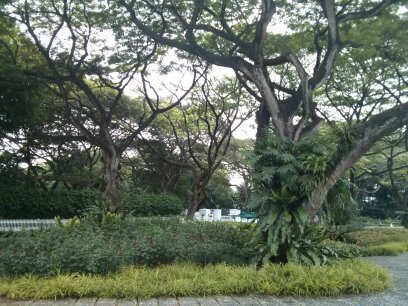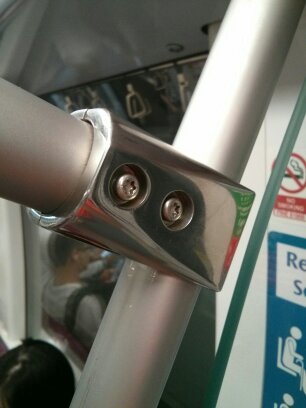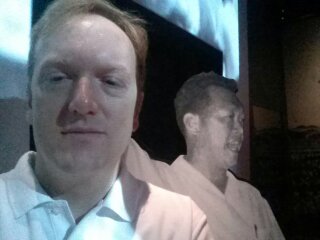Singapore Chronicles
Many Venezuelans have lost their belief that humanity can overcome its circumstances. Me? All it took to reignite this belief was a trip to the other side of the world.


The green.
That’s the first thing that strikes you when you leave Changi Airport and begin the drive into Singapore.
My only previous experience in Asia was hyper-tech Japan, so I was sort of expecting the same thing – crowds, neon, huge LCD screens. Instead, I found myself in a city embedded in a lush tropical garden.
I didn’t know what to expect when I embarked on my maiden voyage to Singapore last week. For years I have been reading about the tiny island nation, perhaps the most remarkable development story of our lifetimes. In a nutshell, in fifty years Singapore went from being Caja Seca to something like the world’s greatest transportation hub. Its education system is the envy of the world.
This transformation fed my imagination, and for years I had longed to come. Now, I was about to see the real thing.
For us policy geeks, Singapore is Disneyland. I could write a long essay about what my week there taught me about development, and about a country’s possibilities to overcome. Instead, I am going to focus on three things.
- The greenery
The greenery in Singapore is not just the result of a blessed geography – it is actually a targeted, well-thought public policy.
 The late Lee Kuan Yew, the founder of modern Singapore, wrote about this in his autobiography, appropriately titled “From Third World to First.” One of the things Lee noticed when he traveled was that other countries either had artificial environments, or had natural environments that were unkempt. Seldom did he find sprawling public spaces that were well taken care of. So one of his target policies in order to convince foreign investors and tourists that Singapore was different was to focus on its relationship with the environment.
The late Lee Kuan Yew, the founder of modern Singapore, wrote about this in his autobiography, appropriately titled “From Third World to First.” One of the things Lee noticed when he traveled was that other countries either had artificial environments, or had natural environments that were unkempt. Seldom did he find sprawling public spaces that were well taken care of. So one of his target policies in order to convince foreign investors and tourists that Singapore was different was to focus on its relationship with the environment.
Lee even talks about how he brought in botanists to discuss ways in which they could make the fragile rainforest soils of Singapore more apt for things like shrubbery and grass. As in – he was personally involved in the planning of this. It wasn’t just something he dispatched to some flunkie, he was involved in the actual discussions with the tree guys and the horticulturists.
Everywhere you go in the city, there are plants, flowers, parks. Very few public spaces are left unattended. All of them are immaculately kept. All of them have been thought about. Their use of endemic species in a harmonious way conveys a lot about the emphasis they place on caring for nature, of sustainability, and of doing your job well.
I think about Venezuela and our lush vegetation. I think about how we pillage it every day – whether it is by killing Lake Maracaibo, filling Parque Nacional Henri Pittier with piles of garbage, or poisoning our rivers with mercury.
I am not a believer in this, but perhaps the rape of our environment has caused some sort of karma. Sometimes it seems as though we are cursed – perhaps this?
- Knowledge society
I was walking down Orchard Road one day and I noticed a sign on a door. It said “Learning Hub,” and “Transformation starts here.” It was the offices of the NTUC.
 Imagine my shock when I found out that the NTUC was Singapore’s main trade union, the equivalent of the AFL-CIO, or the CTV in Venezuela.
Imagine my shock when I found out that the NTUC was Singapore’s main trade union, the equivalent of the AFL-CIO, or the CTV in Venezuela.
Yes – the main sindicato in Singapore promotes … knowledge! Worker re-training!
I can’t even begin to wrap my head around this. Here in Latin America, the fights are about minimum wages, or the right to strike – typical union stuff. But there, the unions appear to be partners in the country’s development agenda, focusing on the skills people need to improve their productivity. This extends obviously to Singapore’s world-famous educational system. The whole country seems wedded to the idea that only knowledge can generate progress. Everywhere you turn, there are signs of universities, schools, courses.
It takes good policy to make this work. And I know what you’re thinking – they are different. True, they are. But it’s also true that they had 40% literacy back in the 50s. Singapore’s knowledge society wasn’t born that way – it was made, thanks to smart policy.
- A job well done
As I was riding Singapore’s amazing Metro system, I couldn’t help notice the cleanliness on the trains. I am sure that, every day, hundreds of people actually wipe the bars, seats, and floors … really carefully. There is practically no dust, no smudges, and definitely no graffiti.
 This wasn’t always like this. Lee writes about how Singapore was mostly an open-sewer city, and about how many of its inhabitants were so used to littering, it was seen as an unchangeable part of the way they were. But through a combination of tough policing, and a culture of taking care of the common good, they have transformed that inheritance.
This wasn’t always like this. Lee writes about how Singapore was mostly an open-sewer city, and about how many of its inhabitants were so used to littering, it was seen as an unchangeable part of the way they were. But through a combination of tough policing, and a culture of taking care of the common good, they have transformed that inheritance.
This goes beyond the actual cleanliness. It conveys a sense of a society that has placed a very important virtue at the center – that a job has to be done well, or not at all.
It’s about cultivating good habits, and about how those habits translate to other aspects of their lives. After all, if you get people used to wiping the floor until it shines, what does that do to their propensity to engage in petty crime? What does it do to the importance they place in education, or saving? To the stability of their families?
As they say, virtue begets virtue.
——-
The National Museum of Singapore is an opportunity to immerse yourself in the country’s history. As I breathed it all in on my last day in the city, I came across a cardboard cutout of Lee Kuan Yew.
 Quietly, when nobody was looking, I took a selfie with the man.
Quietly, when nobody was looking, I took a selfie with the man.
The great thing about the particular policies that I highlighted is that they are not particularly grandiose or expensive to implement. Yet they convey an important part of Lee’s legacy here – that good governance is sometimes evident in the details, in the little things that change perceptions and attitudes.
Lee’s story, and the story of the country he created, gives me hope that yes, public policy can actually change people’s lives for the better. We are not tied to our circumstances. We can never stop believing in humanity’s ability to overcome our past.
It only took me a trip to the other side of the world to reawaken this belief.
Caracas Chronicles is 100% reader-supported.
We’ve been able to hang on for 22 years in one of the craziest media landscapes in the world. We’ve seen different media outlets in Venezuela (and abroad) closing shop, something we’re looking to avoid at all costs. Your collaboration goes a long way in helping us weather the storm.
Donate




